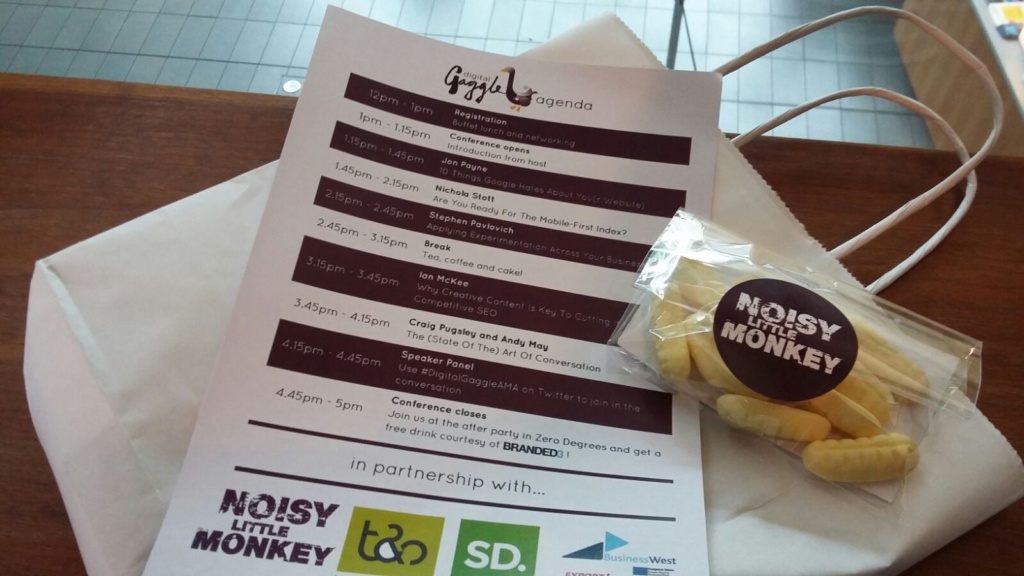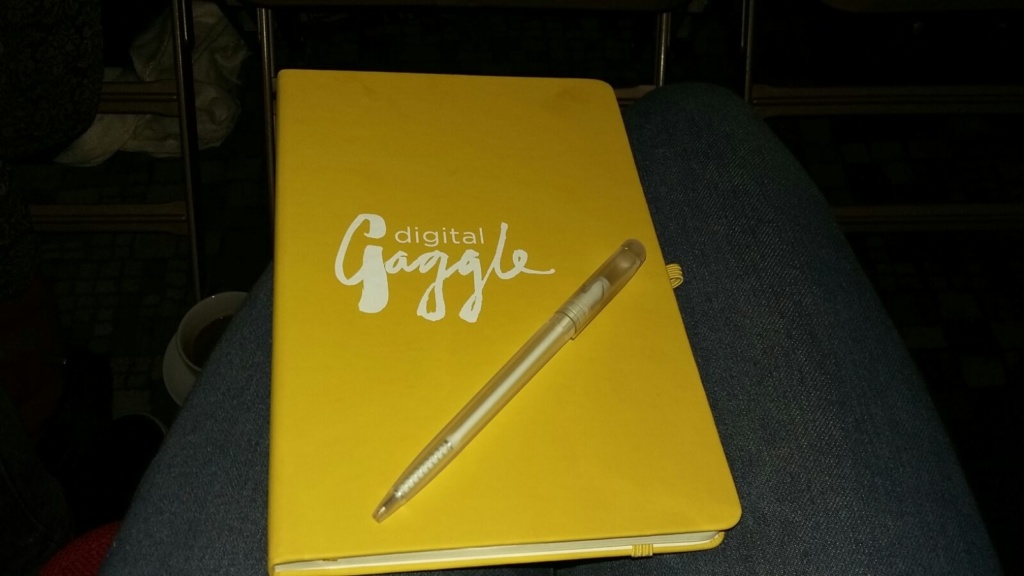
Having recently joined the Seeker Digital Team, and having moved to Bristol from what feels like a lifetime in London, I had the opportunity to attend and represent our team at Digital Gaggle. Keen to learn and experience Bristol’s digital scene first hand, the conference was an eye opening guide into the world of SEO, bingo boards and sassy robots.
10 Things Google Hates About You – Jon Payne
With a title like that, we were off to a good start. What twenty-something woman doesn’t love a good 90’s teen comedy reference?
Jon Payne, Technical Director of Noisy Little Monkey kicked us off with a basic guide to romancing Google with Content, Context, Code and Caboodle. Just four of the 10,000 (!) ranking signals Google checks searches for.
Jon talked us through some of the key factors getting in the way of good SEO results, from image size, UX (user experience), and duplicate content; to mobile friendliness, page security and inefficient code!
It was eye-opening to see just how many factors go into a simple search for pizza. And luckily for a newbie like me, the talk was heavy with analogy: did you know that images are like bags of sweets, and architects are like Shakespeare? True story.

Mobile First Index – Nichola Stott
Then we got a little more technical, with Nichola Stott guiding us through Google’s upcoming shift to preferring mobile devices over desktop. No one is quite sure when it’s happening, but it is happening, and we’re excited.
With a huge 72% of Nichola’s clients’ customers now accessing websites on a mobile device first, Nichola talked us through what this means for optimising websites to maximise results. Keeping with the theme of the former talk, her advice boiled down to simplicity, speed, and efficiency — apparently Google are about as anal about code as your mum is about vacuuming.
Nichola ended with a brilliant line that all those in digital should consider having tattooed on an intern (or yourself): The Future is Battery Powered — meaning, everything you create online should be designed with phones in mind.
Applying Experimentation In Your Business – Stephen Pavlovich from Conversion.com
Not to pick favourites, but Stephen’s talk was the one I took the most from and really engaged with.
By using McDonalds as a case study, Stephen showed us how small scale experimentation can help to scope the market without wasting your budget on a product nobody wants.
Did you know McDonald’s tried to launch a range of pizza’s in the 80s? Needless to say it didn’t catch on, and they lost millions. Not ones to be beaten, everyone’s favourite burger chain haven’t made the same mistake twice, and now use their digital ordering devices to test product demand before even having it in the shop.
Stephen’s talk boiled down to this:
“Take risks, but experiment safely by utilising technology.”
Why Creative Content is Key to Cutting it in Competitive SEO – Ian Mckee (AgencyUK)
Unlike a lot of the speakers at Digital Gaggle, Ian Mckee is a creative / social guy and not a part of the SEO crowd. However, his talk covered using creativity to work with Google and how quality will always outrank quantity.
The biggest thing I connected with from Ian’s talk, and something I am always trying to do as a writer, is finding the humanity in your content and trying to create real connection with your audience. Whether it be using humour or pathos, emotion-triggering content is a surefire way to get you noticed.
Ian had a host of innovative examples from his own agency’s portfolio — from the Ladbrokes Festival Bingo Sheet, to Wings Bingo’s Video Workout: their work was engaging, insightful and really made use of in-depth brand research.
The (State of the) Art of Conversation – Craig Pugsley & Andy May
Closing the conference were Andy and Craig: a pair of Designers & Engineers from Just Eat, talking us through how voice is the next digital frontier.
Physically guiding us through the process of voice search, the guys successfully ordered sushi from a (rather sassy) Alexa Unit; which though pretty extraordinary, was a still little 2001 Space Odyssey (creepy). But it did show us the true potential behind this compelling, growing form of technology (IoT).
What I found most interesting was what this new technology could mean for us writers. While there may eventually be less demand for written content, the need for good writing that emulates how people speak may be huge.
Key things to take away from this talk — Alexa struggles with regional accents and the robotic apocalypse is nigh!

With a (new Digital Gaggle) notepad stuffed full of notes and a belly stuffed with customised vegan cupcakes (even better than they sound) my first trip into Bristol’s digital world was a complete success and Digital Gaggle proved itself a fine conference for anyone wanting to up their skills. Until next year!
